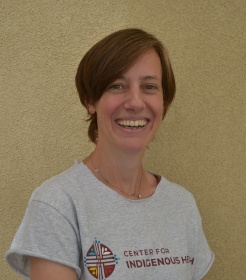Mary F. Cwik, Ph.D. and Emily E. Haroz, Ph.D.


Youth suicide death rates are at an all-time high in the US. During COVID-19, American Indian and Alaska Native (AIAN) youth have once again been disproportionately affected, with their suicide rates continuing to increase more than any other US racial and ethnic group — widening an already devastating disparity gap. For individuals at risk of suicide, lack of access to and utilization of mental health care is a significant problem. The causes of suicide are complex, but new developments in statistics and machine learning have allowed for modeling of these complicated processes with a high degree of accuracy. Machine learning holds promise to increase access to mental health care through better identification of high-risk individuals.
Dr. Haroz and Dr. Cwik’s KTGF-funded project is examining the application of a predictive model to prevent suicide in Native American youth and adolescents. NATIVE-RISE strives to improve the efficiency of case managers who deliver brief interventions by 1) leveraging predictive analytics to improve identification of individuals at risk of suicide, 2) stratifying them into low and high risk, and 3) allowing case managers to prioritize their visits accordingly to deliver interventions best suited to each risk category. Machine learning helps identify and stratify individuals, and the brief interventions help maintain longitudinal contact with those individuals to reduce social isolation and loneliness.
NATIVE-RISE is the only predictive model being designed, tested, and implemented specifically for Native Americans, the population that faces the highest suicide disparities. This work would not be possible without the research partnership between the White Mountain Apache Tribe and the Center for Indigenous Health, nor without the strong history of the White Mountain Apache Tribe exercising tribal sovereignty to reclaim their data and innovatively address suicide and self-harm in their communities. If the study is successful in connecting a high proportion of high-risk youth with interventions, NATIVE-RISE could become an effective and scalable approach that improves mental health services to prevent suicide among Native youth.
The pilot study evaluating NATIVE-RISE in Indigenous adults was recently published in JAMA Psychiatry.